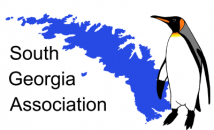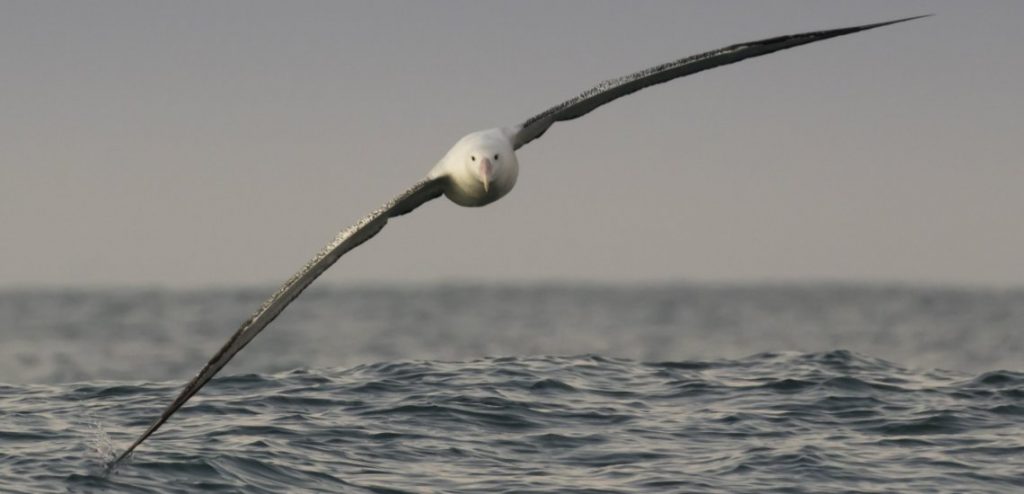A grant has been awarded to assist this project by the use of social media to raise awareness of the impact of fisheries bycatch on South Georgian albatrosses. It aims to conduct public outreach in Japan and put pressure on government, tuna and other fisheries stakeholders to take action to reduce albatross bycatch.
Biologist Stephanie Prince, who has wintered both on Bird Island and at KEP, is now working for the RSPB on the project to raise awareness in Japan about the dangers posed to South Georgia’s albatross population by Japan’s tuna fleet. The SGA is pleased to help with this project, and has awarded an Initiative Fund grant of £750 towards the work. Stephanie writes in her application:
The greatest threat to albatross is being bycaught in fisheries. South Georgia fisheries have reduced bycatch to negligible levels, but distant fisheries still impact albatrosses greatly.
British Antarctic Survey and RSPB identified (SEE HERE) Japan’s tuna fleet as having the greatest overlap with South Georgia albatrosses. Japan reports thousands of birds killed per year by their fleets and many are South Georgia species. However, in Japan few people know about albatross or bycatch as it happens far from Japan in High Seas fisheries.
RSPB/BirdLife work in Japan with government, the tuna supply chain, and fishing companies to stop albatrosses deaths. To build pressure on stakeholders to act, we’ve raised public awareness of this issue through a social media campaign, Albatross Stories, in the UK and Japan since January 2019.
Using photos/video from Bird Island, and Japanese cartoons we’ve introduced Bird Island albatross, followed individual birds and detailed threats, on Twitter, Instagram, and Facebook. We also held an albatross naming and art competition which boosted our following. We have an Albatross Stories webpage where RSPB articles are translated to Japanese.
The campaign’s following continues to increase exponentially and creates opportunities to increase public knowledge on bycatch. We want to further our campaign to focus more on bycatch as well as building up fun and educational engagement through albatross quizzes and content suitable for a wide audience. We will use this increased following to show the Japanese tuna industry that there is public support for saving albatrosses, and it’s not an issue that can be ignored.
In an update following receipt of the award, Stephanie tells us:
RSPB and BirdLife’s Albatross Stories campaign has had a strong start to the year with lots of albatross news from Bird Island, including the fledging of the wandering albatross star, Nova, that we have been following since February 2020. Nova was part of a ground breaking study by BirdLife and BAS to track wandering albatross fledglings and to detect how much they are spending near fishing vessels. You can find out more information and see the tracks here. Nova’s tag unfortunately didn’t seem to work after leaving the island but we’ve just received some ‘pings’ from her tag off the coast of Brazil, so it might not be over for Nova after all. This is great news as our audiences in both Japan and the UK are very fond of Nova and keen to hear the latest updates. In other Bird Island news, we are also closely following the nests of a grey headed albatross nest, belonging to a pair we followed two seasons ago, a new black-browed albatross pair, and a wanderer pair, Amelia and Atlas, that fledged a chick Greta a year ago. We will continue to build the stories of these individuals and keep our audience engaged in the lives of the birds.
We’ve also been telling our audiences about the Albatross Task Force’s recent success story in Namibia, where working with fishers and government has led to 22,000 birds being saved every year from being killed in the hake fisheries. This astonishing figure includes many South Georgia birds, including black-browed albatross and white-chinned petrels. Providing these success stories shows our audiences what can be done and gives them hope that we can see similar results in their own countries.
We would like to thank the SGA for your recent support and we’re looking forward to updating you on the progress of our work over the next few months.
SGA Members are reminded that we do have an Initiative Fund, which can help with small projects, or to kickstart a bigger one. See the Initiative Fund Page for more details.

